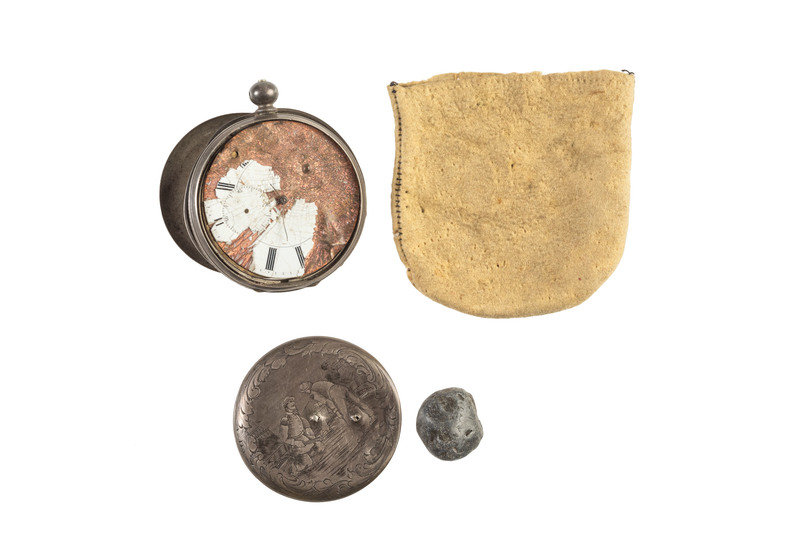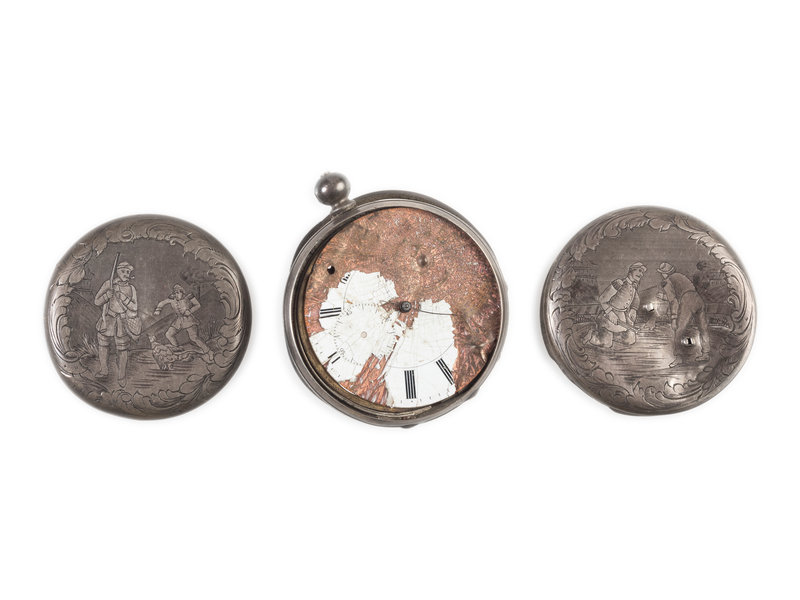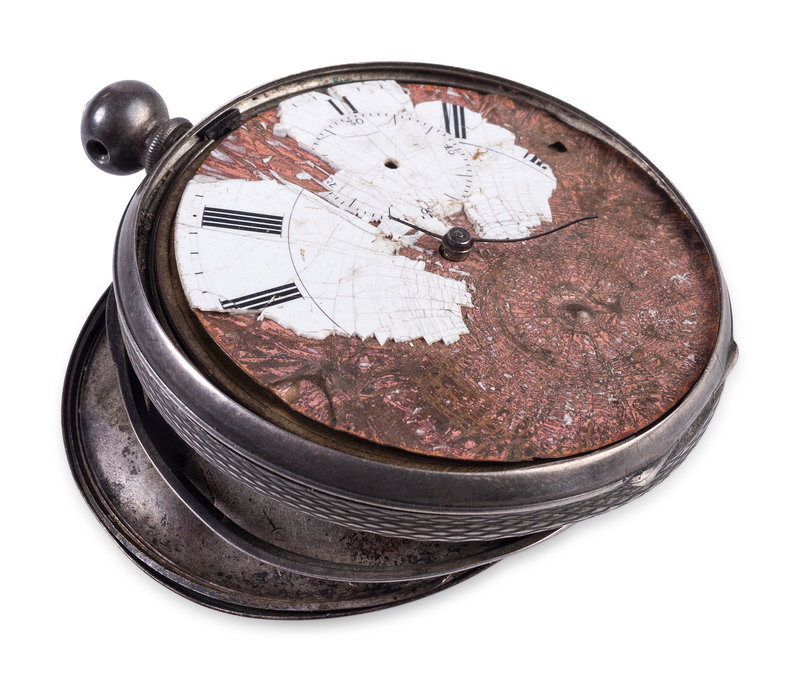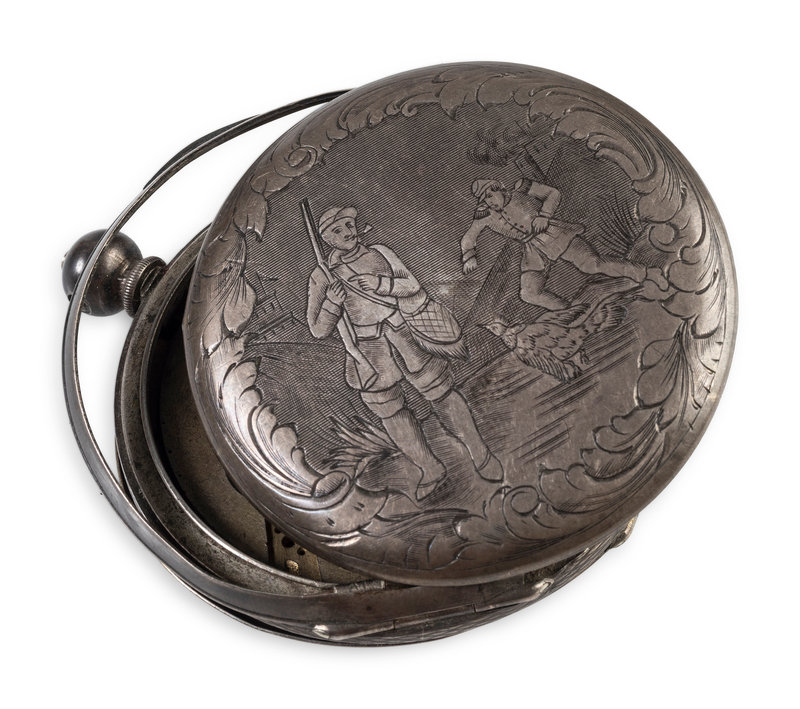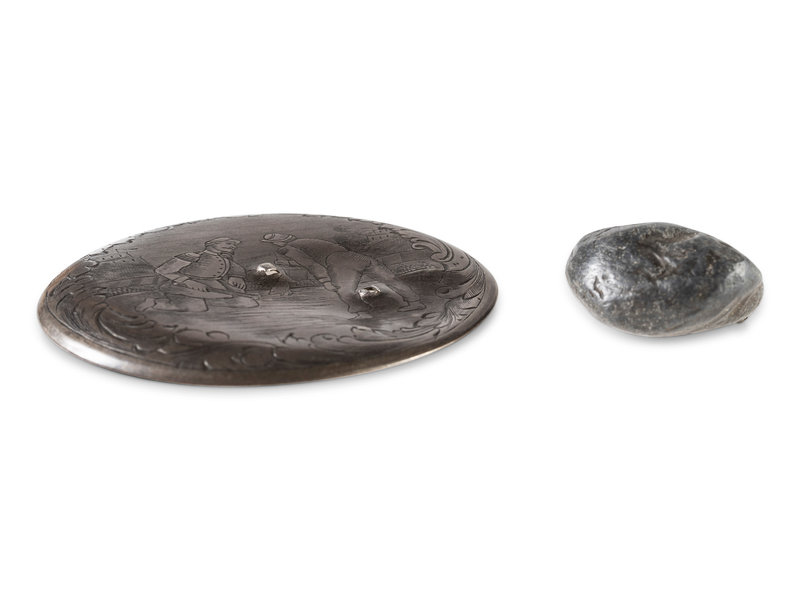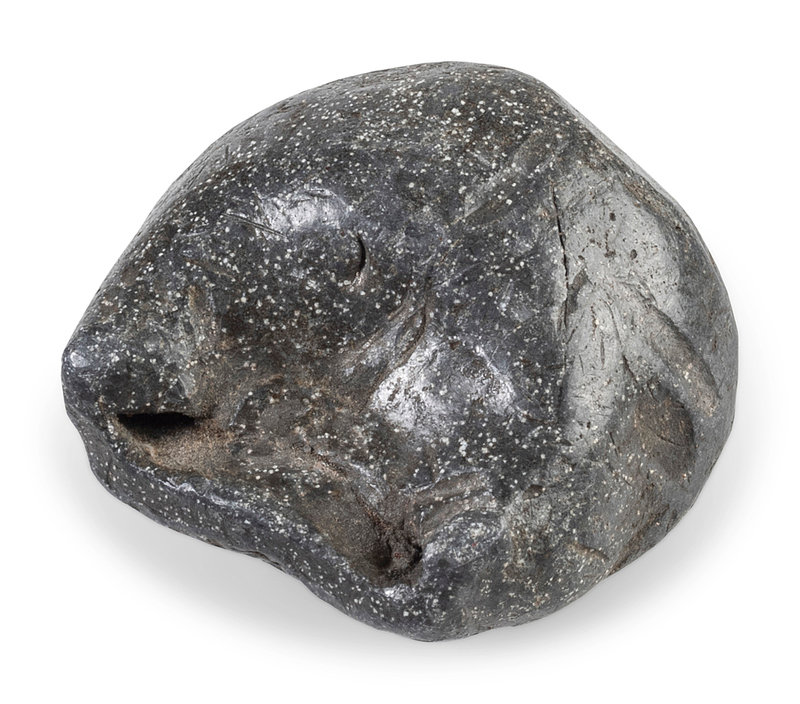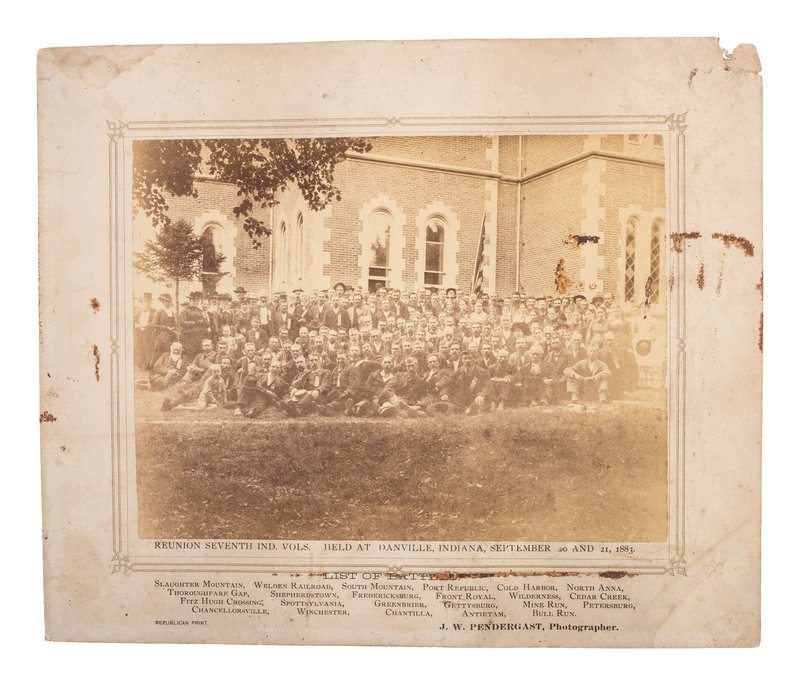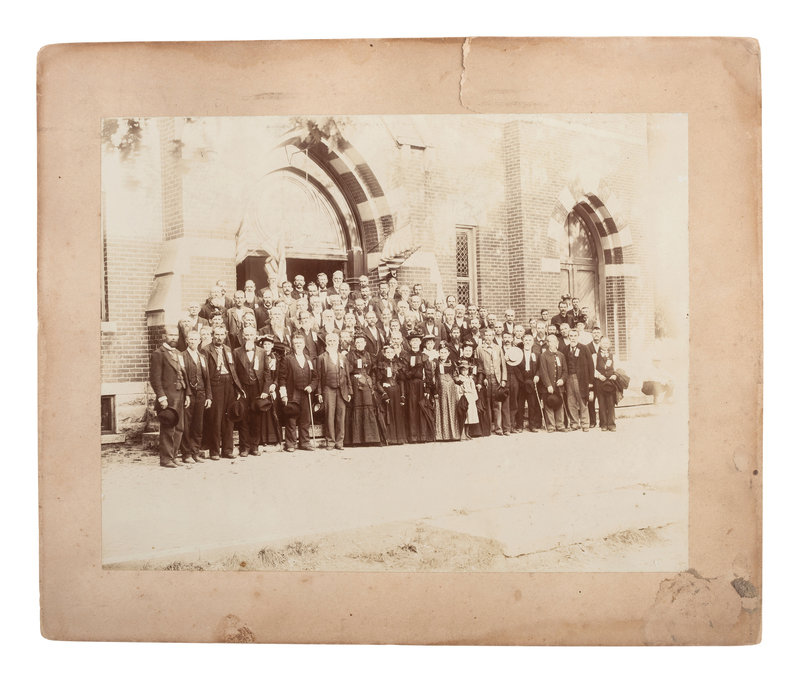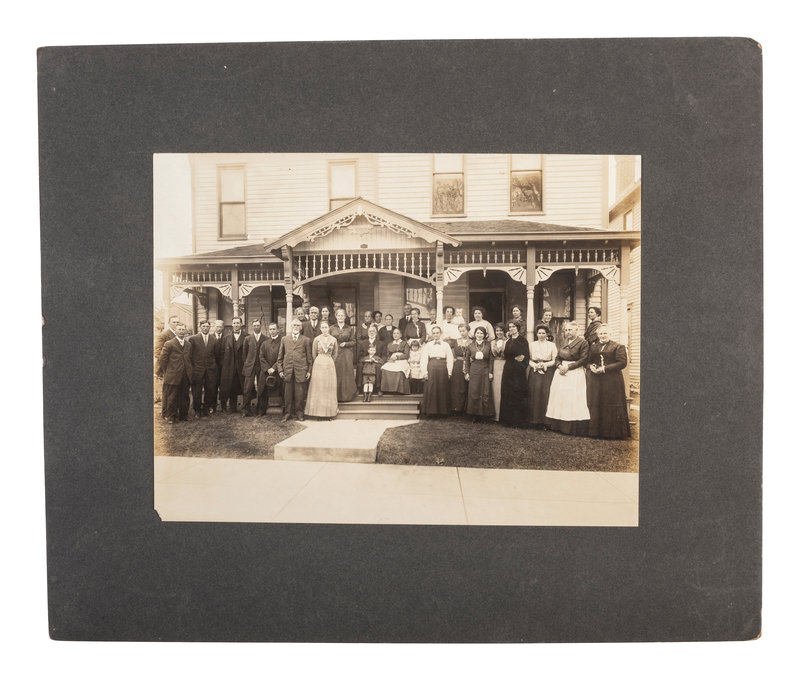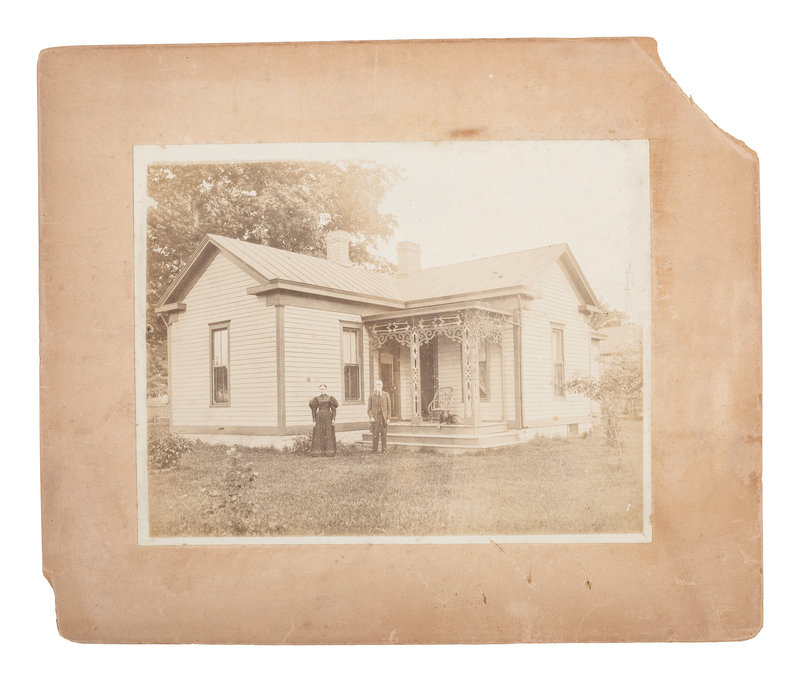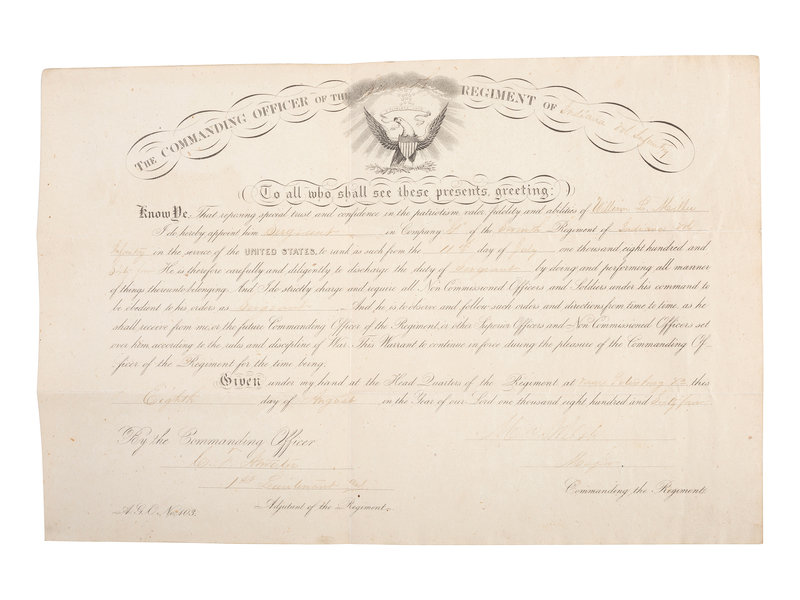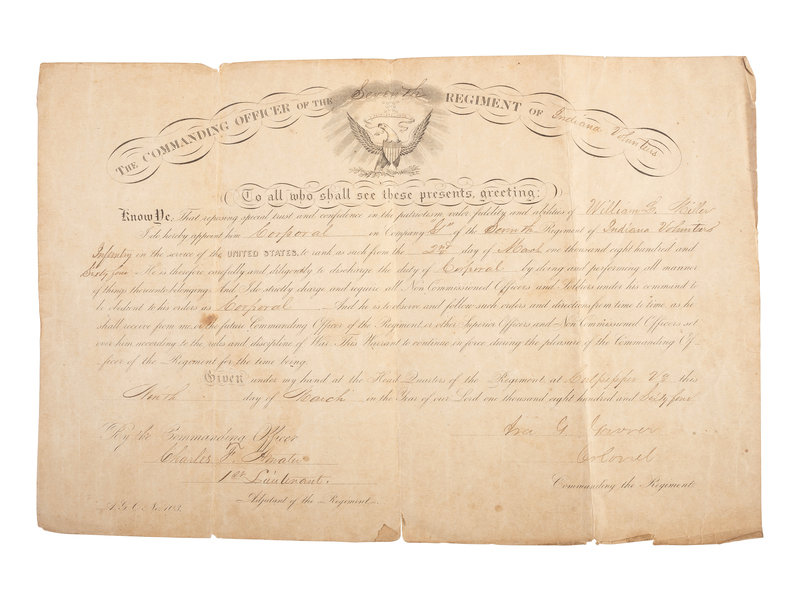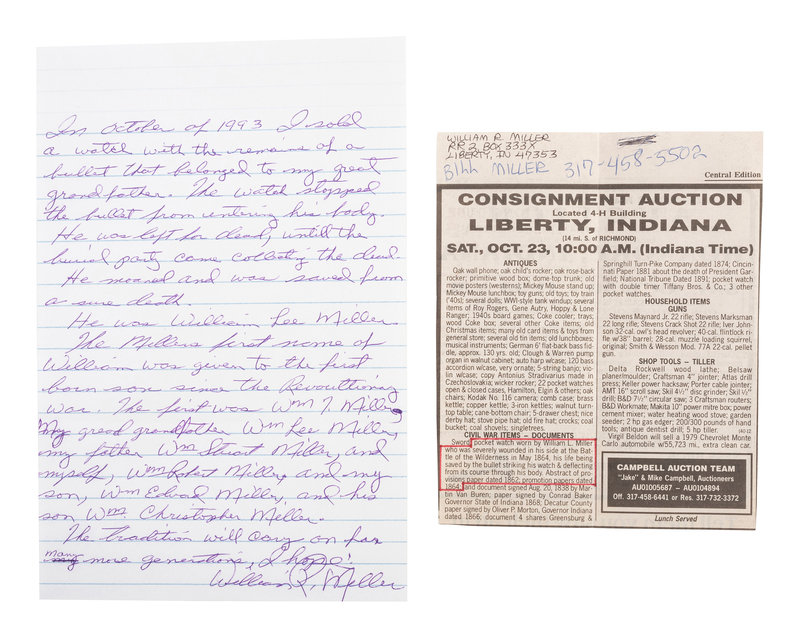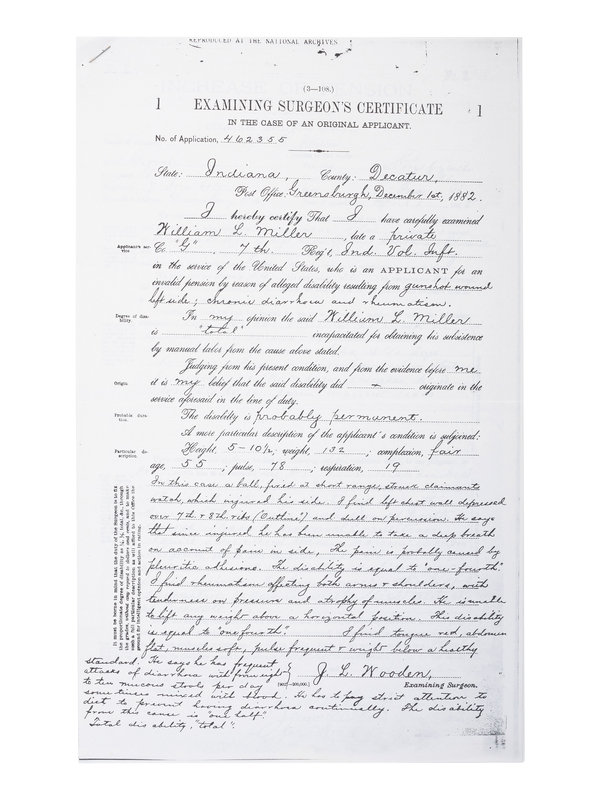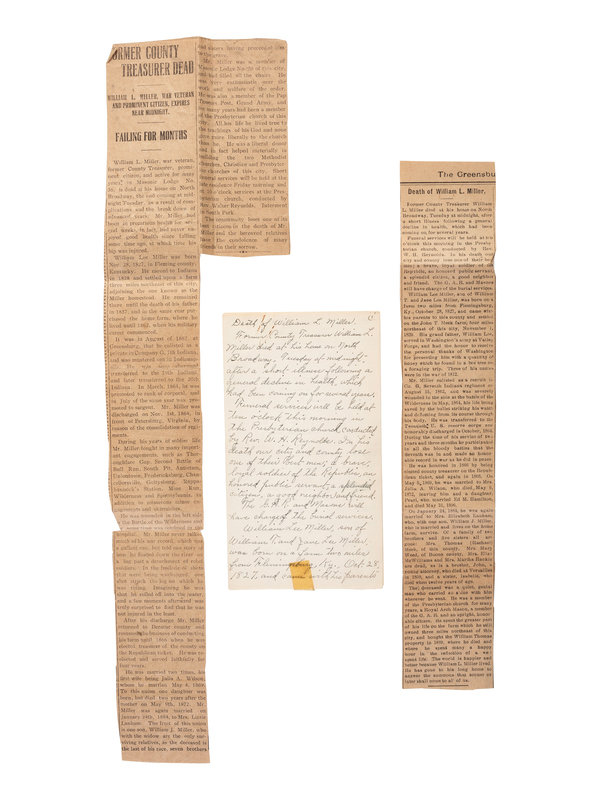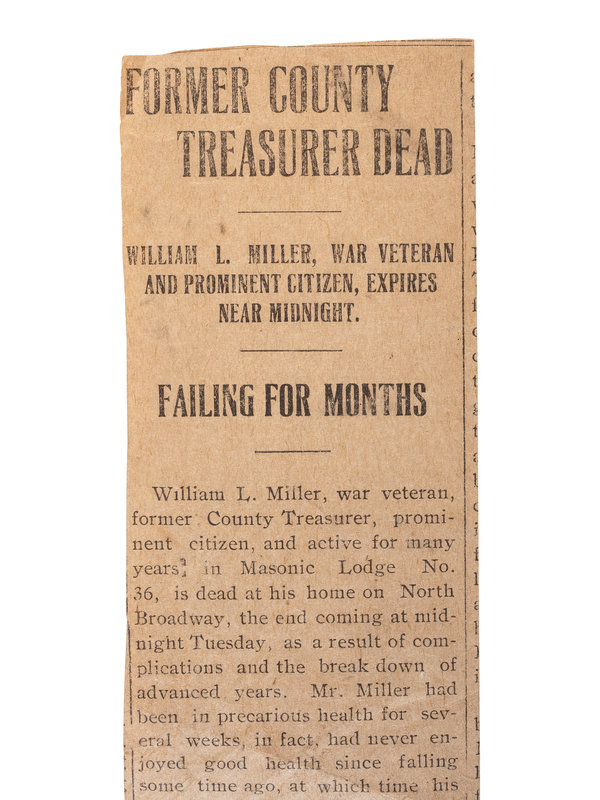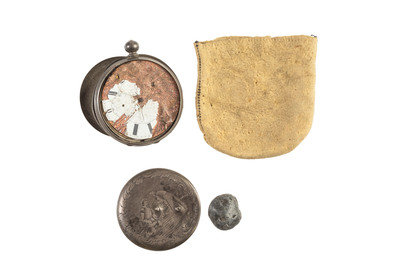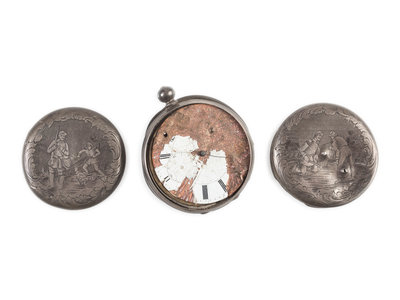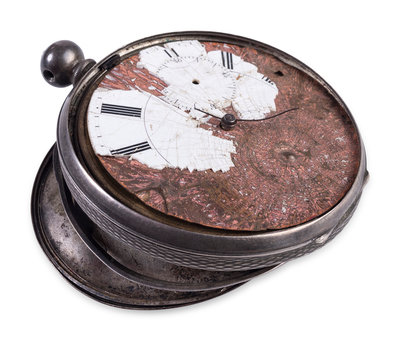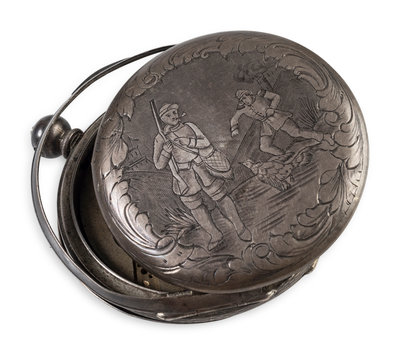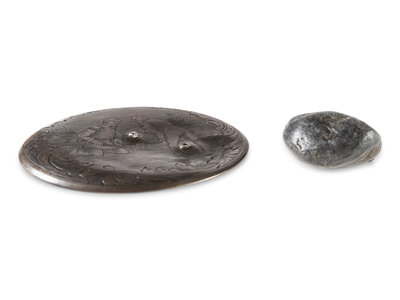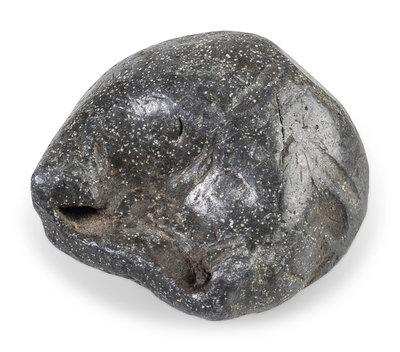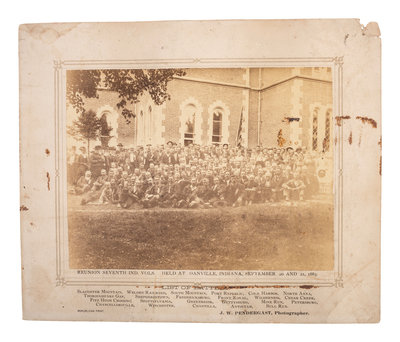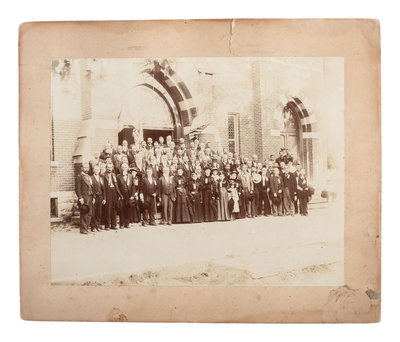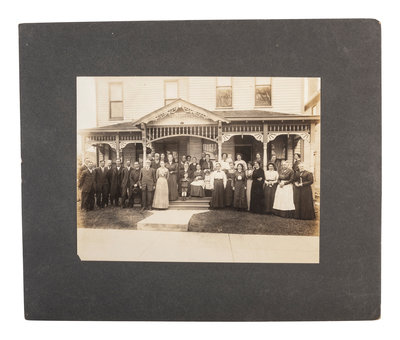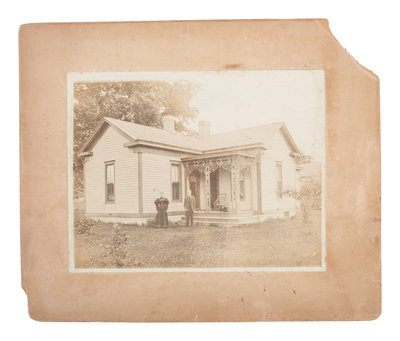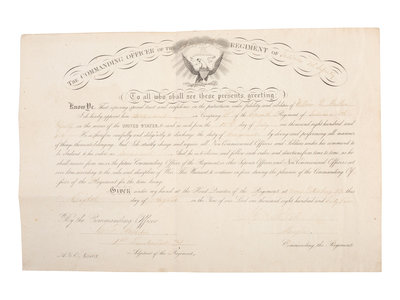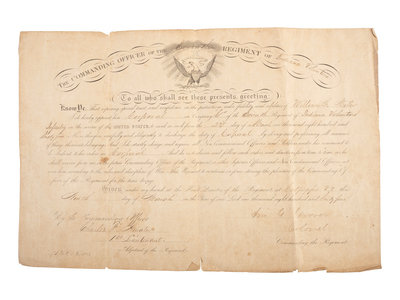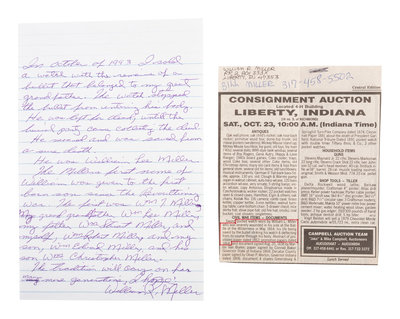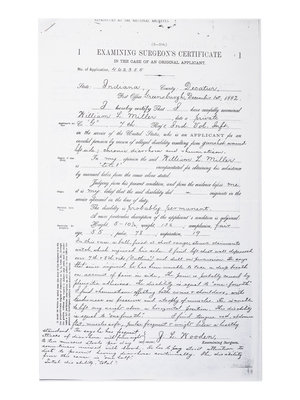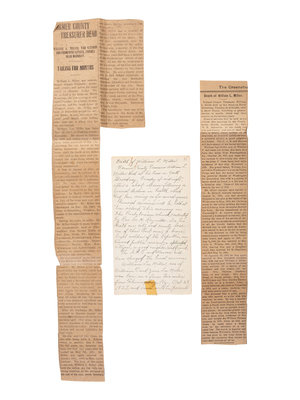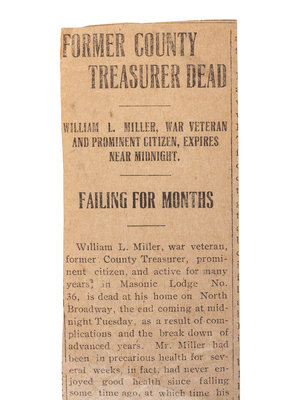Corporal William L. Miller, Company G, 7th Indiana Volunteers. Bullet-struck pocket watch carried at the Battle of the Wilderness, which saved his life, with original bullet that almost ended it. May 1864.
Sale 964 - The Civil War Collection of James C. Frasca
Nov 12, 2021
10:00AM ET
Live / Cincinnati
Own a similar item?
Estimate
$4,000 -
6,000
Price Realized
$10,000
Sold prices are inclusive of Buyer’s Premium
Lot Description
Corporal William L. Miller, Company G, 7th Indiana Volunteers. Bullet-struck pocket watch carried at the Battle of the Wilderness, which saved his life, with original bullet that almost ended it. May 1864.
At the Battle of the Wilderness in May, 1864, Miller was knocked unconscious when a bullet struck the pocket watch in his vest pocket. His pension records include the statement that he “was severely wounded at the battle of the Wilderness in May, 1864, his life being saved by the bullet striking his watch and deflecting from its course through his body.” He was found by a burial party later and revived. Miller’s pension records are provided with this grouping and include affidavits from Miller’s comrades in which they describe finding Miller with the minie ball on the ground next to the destroyed pocket watch where he lay.
The collection is comprised of the following:
Miller’s M.I. Tobias pocket watch that was broken to pieces by the bullet that turned it “wrong side out.”
[With:] The deformed ball that hit it and pouch that the watch was stored in.
[With:] Nine letters by Miller as a member of Company G, 7th Indiana Volunteer Infantry ranging from 14 July 1863 to 30 September 1864.
Most of his letters concern various illnesses suffered by him or others in the unit (presumably from the same town). In one (4 July 1864) he notes that he has sporadic chills and is taking quinine for it. In his letter of the following week, he tells his mother that his face is swollen from the fever and he is almost unrecognizable, but the day before, many of the men left the hospital to help defend the city of Baltimore, including men who had fingers shot off and were not yet healed.
From Louden County, VA, 19 July 1863, he writes as the regiment crossed the Potomac near Harpers Ferry, noting that the area was not as war-torn as other parts of Virginia. “Today is the 38th day since we left our camp on the Rappahannock during all this time we have been on the march except what time we were fighting at Gettysburg. The boys are nearly worn out but considering all thing have stood up much better than could be expected. I am of the opinion that a man can travel 20 miles a day carry a heavy knapsack gun 60 round of ammunition and three days rations and come out in better condition than a horse at the end of one month.” But he goes on to say that he thinks this would be a problem for a young man who has not finished growing. They would not be able to stand up straight.
Most of his letters concern various illnesses suffered by him or others in the unit (presumably from the same town). In one (4 July 1864) he notes that he has sporadic chills and is taking quinine for it. In his letter of the following week, he tells his mother that his face is swollen from the fever and he is almost unrecognizable, but the day before, many of the men left the hospital to help defend the city of Baltimore, including men who had fingers shot off and were not yet healed.
From Louden County, VA, 19 July 1863, he writes as the regiment crossed the Potomac near Harpers Ferry, noting that the area was not as war-torn as other parts of Virginia. “Today is the 38th day since we left our camp on the Rappahannock during all this time we have been on the march except what time we were fighting at Gettysburg. The boys are nearly worn out but considering all thing have stood up much better than could be expected. I am of the opinion that a man can travel 20 miles a day carry a heavy knapsack gun 60 round of ammunition and three days rations and come out in better condition than a horse at the end of one month.” But he goes on to say that he thinks this would be a problem for a young man who has not finished growing. They would not be able to stand up straight.
[With:] Warrant for Miller for the rank of Corporal dated 3 March 1864, signed by Colonel Ira G. Grover.
[With:] Warrant for Miller for the rank of Sergeant dated 8 August 1864, signed by Major M.C. Welsh.
[With:] Photograph of the 7th Indiana Reunion at Danville, Indiana, 20-21 September 1883.
[With:] Photograph of the 7th Indiana Reunion.
[With:] Miscellaneous family papers including a handwritten copy of Miller’s obituary as well as two newspaper obituaries.
[Also with:] Handwritten affidavit of descendant William R. Miller describing the sale of his great grandfather’s watch and the auction advertisement from the sale of the family estate.
Miller, a resident of Greensburg, Indiana, enlisted on 9/16/1862. He was promoted to the ranks of corporal and then sergeant while still a member of the 7th Indiana Volunteers. He transferred to the 20th Indiana Volunteers on 20 September 1864.
The Civil War Collection of James C. Frasca
Condition Report
Auction Specialist
